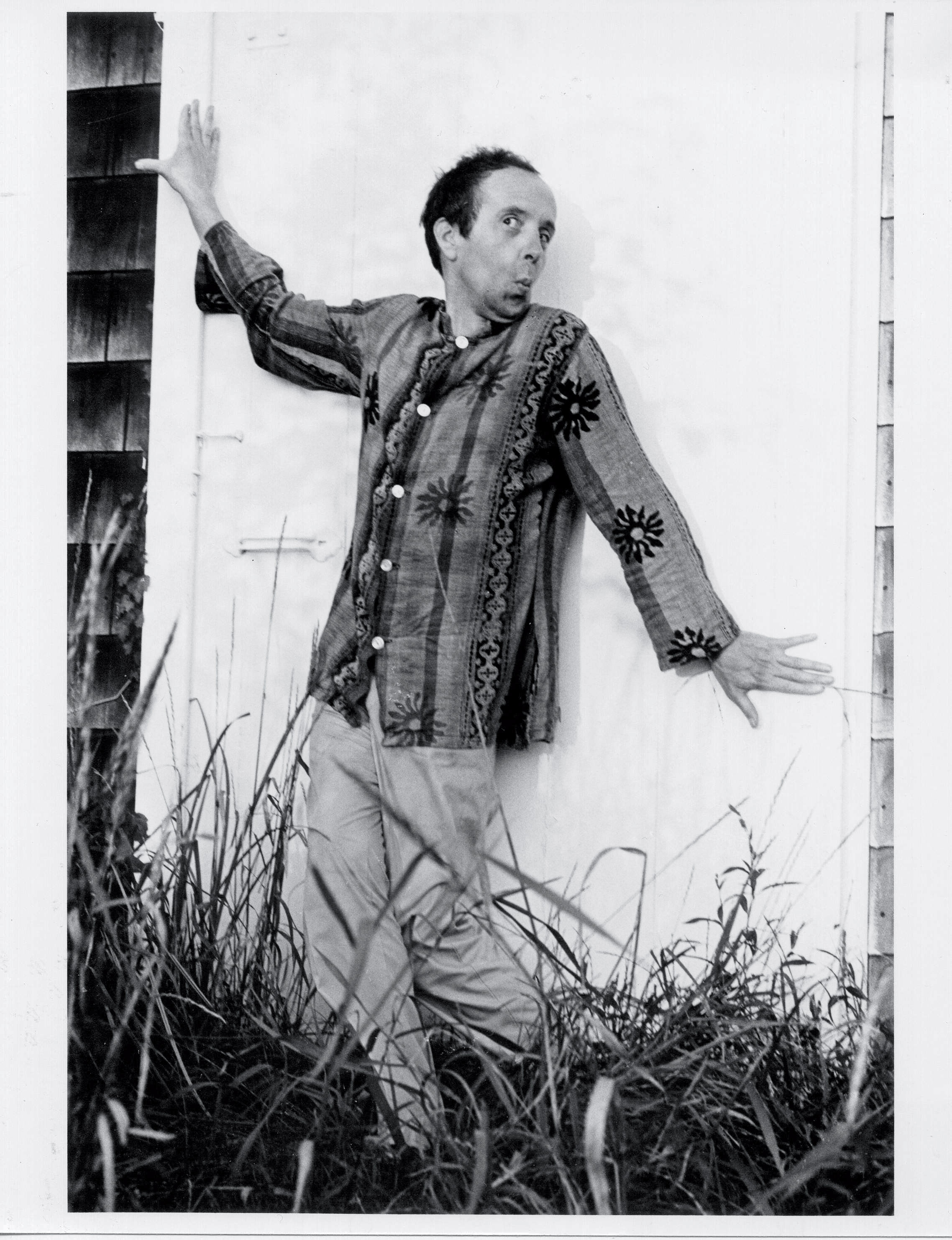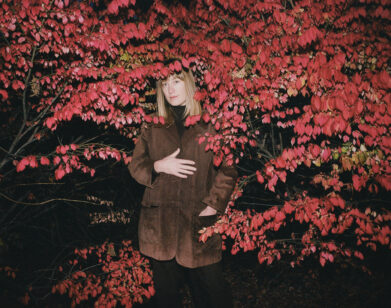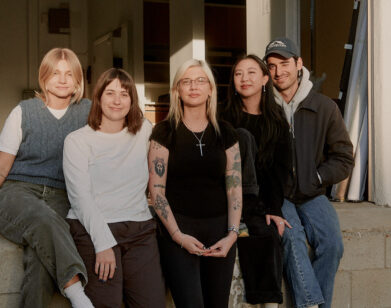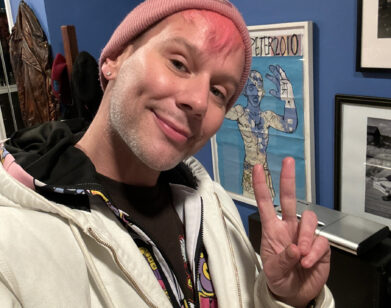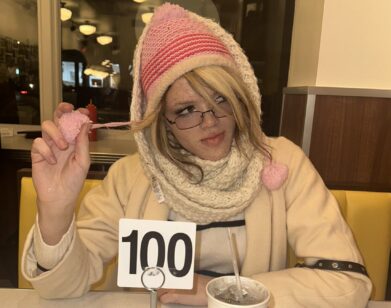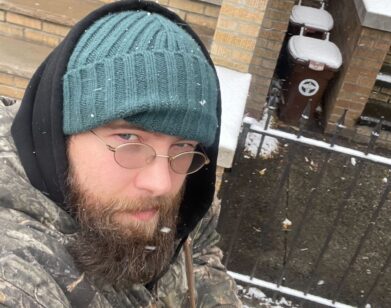Factory Workers WarholitesRemember: Taylor Mead
Writer and actor Taylor Mead’s turns in Ron Rice’s seminal experimental film classic, The Flower Thief (1960), and, later, as Tarzan in Andy Warhol’s Tarzan and Jane Regained . . . Sort of (1964) went a long way toward etching out his place as America’s first underground matinee idol. A fixture in the San Francisco Beats world and, later, in the burgeoning New York independent film scene, Mead accompanied Warhol on quite a few trips crisscrossing America. Small, frail-looking, and perpetually unassuming, the 83-year-old Mead has continued to work as an actor and a writer, appearing in films by Jim Jarmusch and Nick Zedd and performing at the Bowery Poetry Club. He can also often be spotted holding court in the small hours of the morning at Lower East Side bars and feeding stray cats in the nearby cemetery.
ADRIAN DANNATT: When was the last time you saw Andy Warhol?
TAYLOR MEAD: I think it was at some nightclub on West 19th Street, when he was really in pain. His doctor, Dr. Denton Cox, was a great friend of mine. He had been begging Andy to go to the hospital for his gallbladder. Andy was really stuffy— he was supposed to judge a fashion contest— but, of course, he finally went in. It was a disaster. The doctor had one story; I heard another. When the nurse put in the IV, she forgot to put in the draining tube, and he filled up with liquid and had a heart attack. Then Denton Cox explained that Andy woke up alone and he couldn’t stand being alone, so he died of a heart attack. That’s the problem of being rich and isolated. I miss Andy, to say the least.
DANNATT: How did you hear the news about his death?
MEAD: It was in all of the papers, on the front page of the Post. I didn’t shed any tears. I shed tears when Valerie Solanas shot him. We’d just come back from making a movie in La Jolla called San Diego Surf. I wish I’d been there, because I was there for the first shooting in 1967, and I jumped the gunman. But a year after Valerie shot Andy, I opened a letter from her that said, “I’m going to get you and Andy and Viva.” I had old mail all over the place. If I had picked up that letter earlier, I would have called the police immediately.
DANNATT: How did you jump the gunman the first time?
MEAD: I jumped him because he put a girl’s rain hat on Andy and had him kneel down— he had us all kneeling. And Nico and Paul Morrissey and Gerard were just sitting there like they were watching a movie. They did nothing. Then the gunman handed Paul Morrissey the gun, which he’d already shot at the wall. Paul insisted he wasn’t going to give the gun back, but he was just barely holding onto it. The gunman went to grab the gun back, so I jumped him. It was like jumping a brick wall. The guy was very strong. I couldn’t budge him. So I went to the window and hit it, and it exploded onto 47th Street. The YMCA was across the street and people poured out. The gunman ran down the stairs. He had another person waiting outside. They were going to put one of us in the trunk of the car. Andy probably.
DANNATT: You were out on the West Coast in the ’50s?
MEAD: Yeah, in the mid ’50s, when Allen [Ginsberg] was reading, when it was really hot. But the police were trying to throw everyone out of San Francisco. I was walking down the street, and Allen said, “You’d better get out of San Francisco.” It spooked me. I got out of there and hitchhiked back to New York. In fact, I’d tried to avoid New York because I used to come down from boarding school to see Broadway shows. I was intimidated by New York. It was overwhelming. But everyone was sitting on their stoops, minding their own fucking business, and I thought, “What a great city. Everyone here can be private.” In Detroit I couldn’t cruise or anything. So I slept in Central Park, begged, was totally broke. But New York was anonymous. That’s why the subtitle of some of my books is Anonymous Diary of a New York Youth, Taylor Mead.
DANNATT: By the time you appeared in The Flower Thief, you’d already done quite a lot of acting, off and on. I was wondering whether you ever felt like you were over-associated with Andy Warhol?
MEAD: Michael Musto once wrote in The [Village] Voice, “Oh, Taylor Mead is eating out on Andy Warhol.” And, of course, I wasn’t eating out on Andy Warhol. In fact I was famous before I met Andy. I didn’t get involved with Andy until 1963 and I’d already done a bunch of stuff. The Flower Thief, The Queen of Sheba Meets the Atom Man, Lemon Hearts with Vernon Zimmerman, which won a big award [presented] at the MoMA. He got a couple thousand [dollars] as best young director under 25. And the motherfucker, because it was my cousin’s first husband, who was doing a famous Broadway musical, who gave us the money and the idea to make a movie. I think it only cost 50 bucks to buy all this film, because we got WWII machine-gun film. It shoots great quality. And fucking Vernon Zimmerman, he gets two thousand. He gave me a hundred bucks. Ron Rice robbed me blind, too. With Ron I had an agreement, 50-50 for The Flower Thief. He ran away with all the money. The only honest person I’ve done movies with is Jim Jarmusch. With Andy, it was all promises, promises.
DANNATT: Do you think any movie star has made less money than you?
MEAD: No.
DANNATT: And who was the most famous person you’ve ever slept with?
MEAD: Montgomery Clift.
DANNATT: No.
MEAD: What do you mean, no? He was nothing to go to bed with. He had a small penis. I just met him on Central Park West. One of those sleazy meetings in the evening that were so delicious. [laughs]
DANNATT: Was there much sex in the Factory?
MEAD: There were no orgies. Everyone was so high, and it was all sort of indifferent. I was never in an orgy.
DANNATT: Did you actually have sex on film?
MEAD: No. But Andy wanted me to have sex with a woman, and, of course, I’m a virgin. I said, “Well, for $500,000.” He never asked me again.
DANNATT: What do you think about Andy’s sex life?
MEAD: We traveled across the country together. When we were in a motel in Arizona someplace, this attractive bellhop who had a couple fingers missing wanted to make it with me but he wanted 10 bucks! And I said, “Well, the rich guy’s down the hall.” The next morning at breakfast, Andy said, “Taylor, what happened, what happened?” ‘Cause Andy loved to hear stories about other people’s sex lives. I said, “Nothing happened. He wanted 10 bucks.” Andy was so disappointed.
DANNATT: How do you feel about his enormous reputation now as a great artist?
A YEAR AFTER VALERIE [SOLANAS] SHOT ANDY, I OPENED A LETTER FROM HER THAT SAID, ‘I’M GOING TO GET YOU AND ANDY AND VIVA.’ I HAD OLD MAIL ALL OVER THE PLACE. IF I HAD PICKED UP THAT LETTER EARLIER… TAYLOR MEAD
MEAD: I loved being with him when he wasn’t being evil, and working with him was a piece of cake. In his low-key way, he was so different, so original. And his answers to everything were wonderfully cryptic and brilliant. Genius.
DANNATT: Do you think his real bastard child is the celebrity culture of today— this celebrity madness?
MEAD: He was the first to turn the spotlight against the huge corporations. When we were driving to California, he had already done his Campbell’s Soup in New York. As we got near California, it was like Andy Warhol was coming from California to meet us. The motel signs were all Pop art. It was Voltairian, a brilliant comment on the social structure of the United States. This 25-cent can of soup will cost you $25,000, and then $2,500,000. And people who imitate him, they just didn’t do it first. There are infinite variations. I once said, “Andy, you know that tear coming down”— it was in some celebrity he painted— “makes it very emotional.” He said, “Oh, I don’t want that.”
DANNATT: But do you think his obsession with celebrities is now the dominant mode of American
entertainment?
MEAD: Andy would have adored it. He and Britney [Spears] would be the best of friends.
DANNATT: Is there anything you’d like to say to him if he were still with us?
MEAD: Why didn’t you leave us all a couple hundred grand at least, bitch?
DANNATT: Do you own any Warhol works?
MEAD: I had two Mick Jagger prints. I sold both of them for 500 bucks. They’re now worth $20,000 each. Andy heard about my selling them. Andy said, “Oh, Taylor, I knew you’d do that.” It was 90 degrees in New York, and I was starving. I really liked the Mick Jagger prints. I said, “I’d better get rid of them because I can’t afford to even have them in my apartment.”
DANNATT: Had he given them to you?
MEAD: Yes, but he’d promised to do a portrait of me. Instead, he had me distracted by some young hustler at the Factory. While I’m talking to the hustler, he wrapped up the two prints. He was a clever kid. “Kid Warhol.” He could have had a boxin.

